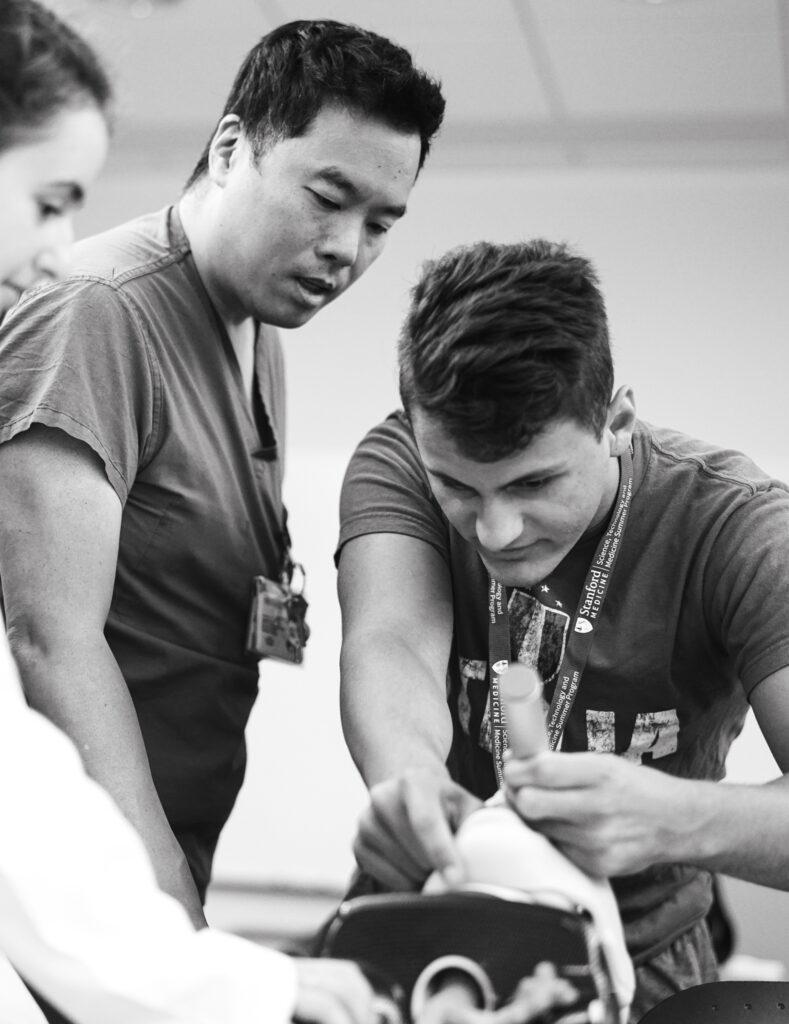
5 Key Takeaways from Decoding the Future: AI’s Transformative Journey in Anesthesiology
- Large language models (LLMs) have the potential to revolutionize healthcare by assisting with tasks such as patient documentation, rare disease diagnosis, and enhancing doctor-patient communication.
- Balancing general AI models with domain-specific knowledge is crucial for the effective application of AI in anesthesiology and healthcare.
- Identifying and addressing inefficiencies in medical processes can drive innovation and improve physician satisfaction and patient care.
- Interdisciplinary collaboration among anesthesiologists, engineers, designers, and other experts is essential for developing effective technological solutions in healthcare.
- Anesthesiologists must actively participate in shaping the future of their field by embracing new technologies, engaging in problem-solving, and considering the ethical implications of AI in healthcare.
In the inaugural episode of Intelligent Anesthesia, host Dr. Larry Chu, MD, a Professor of Anesthesiology, Perioperative and Pain medicine at Stanford University, embarks on a journey exploring the intersection of technology and anesthesiology. Joined by two distinguished guests, Alex Goodell, MD, an AIM Lab fellow, and Dara Rouholiman a machine learning engineer in the AIM Lab, the conversation delves into the transformative potential of artificial intelligence (AI) and large language models (LLMs) in revolutionizing healthcare and anesthesiology.
Dr. Goodell shares his insights on the applications of LLMs in clinical settings, from customizing patient documentation to assisting in rare disease diagnosis. He highlights the importance of evaluating and addressing the limitations of these technologies while emphasizing their potential to enhance patient care and communication.
"Intelligent Anesthesia is a place where we want to create a safe space to talk about the frustrations we face in healthcare, maybe find some smart people, anyone who would like to think about solutions to these issues, and to understand we need diverse skill sets to help solve them."

Dara Rouholiman brings a unique perspective, having transitioned from academia to industry and back again. He discusses the differences in approaching AI and machine learning in these two domains, stressing the significance of balancing general AI models with domain-specific knowledge in anesthesiology.
The guests also share their personal journeys and the moments that sparked their passion for integrating technology into healthcare. Dr. Goodell recounts his frustrations with inefficiencies in medical processes and his drive to find innovative solutions. Dara Rouholiman emphasizes the importance of understanding the problem before rushing to create a solution, highlighting the value of active listening and collaboration.
Throughout the episode, Dr. Chu facilitates an engaging discussion on the ethical considerations, practical challenges, and immense potential of AI in anesthesiology. The conversation serves as a call to action for anesthesiologists to embrace interdisciplinary collaboration and to actively participate in shaping the future of the field of Anesthesiology.
 Dr. Alex Goodell is a talented anesthesiologist and internist at Stanford Medicine who is passionate about the intersection of technology, design, and healthcare. With a strong interest in artificial intelligence, design thinking, and open-source software, Dr. Goodell is dedicated to developing innovative solutions that enhance the experiences of both patients and physicians.
Dr. Alex Goodell is a talented anesthesiologist and internist at Stanford Medicine who is passionate about the intersection of technology, design, and healthcare. With a strong interest in artificial intelligence, design thinking, and open-source software, Dr. Goodell is dedicated to developing innovative solutions that enhance the experiences of both patients and physicians.
As a fellow in the prestigious Stanford AIM Lab, Dr. Goodell focuses on creating tools that streamline processes and improve real-time data access for anesthesiologists. His current projects span medical usability analysis and the evaluation of large language models in clinical settings, showcasing his commitment to leveraging cutting-edge technology to revolutionize healthcare delivery.
Dr. Goodell’s educational background is equally impressive. He completed his medical degree and a masters program at the renowned UC Berkeley – UCSF Joint Medical Program, further honing his skills through the Combined Internal Medicine/Anesthesiology Residency at the Stanford School of Medicine. His board certification in internal medicine underscores his expertise and dedication to providing exceptional patient care.
With a passion for innovation and a deep understanding of the healthcare landscape, Dr. Alex Goodell is poised to make significant contributions to the field of anesthesiology and beyond, shaping the future of medicine through the power of technology and human-centered design.
 Dara Rouholiman is a talented machine learning research engineer at Stanford University School of Medicine, dedicated to developing cutting-edge ML methods and systems that improve people’s health and longevity. With a strong background in data science and a passion for innovation, Dara has made significant contributions to the field of digital health.
Dara Rouholiman is a talented machine learning research engineer at Stanford University School of Medicine, dedicated to developing cutting-edge ML methods and systems that improve people’s health and longevity. With a strong background in data science and a passion for innovation, Dara has made significant contributions to the field of digital health.
Prior to joining Stanford, Dara served as a machine learning engineer and data science lead at Cor (Nueon Inc.), where he designed and deployed ML systems for at-home NIR spectrometers, helping users understand their body’s response to healthy interventions. He also co-founded Telesphora, an award-winning startup that utilized geotemporal event modeling to predict and mitigate opioid overdose outbreaks.
Dara’s expertise spans a wide range of areas, including machine learning, deep learning, software development, and medical technology. He has collaborated with numerous companies and organizations, such as 11Health, Enara Health, EVA, HHS, and Stanford University, to evaluate and validate ML models and systems.
Holding a Bachelor of Science degree in Physical Chemistry and Bioinformatics from the University of California, Santa Cruz, Dara has also earned certifications in Algorithms from Stanford University and Natural Language Processing from Udacity. His research has been published in prestigious journals, such as The Journal of Immunology and JMIR Research Protocols.
With his innovative mindset and strong technical skills, Dara Rouholiman is poised to make further groundbreaking contributions to the intersection of machine learning and healthcare, ultimately improving patient outcomes and transforming the future of medicine.



